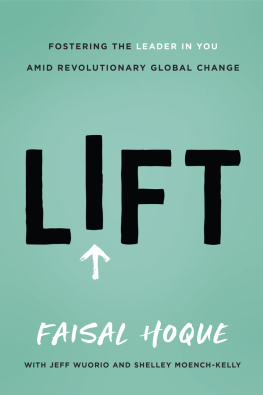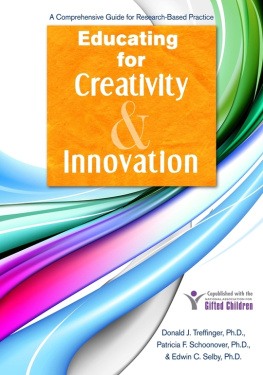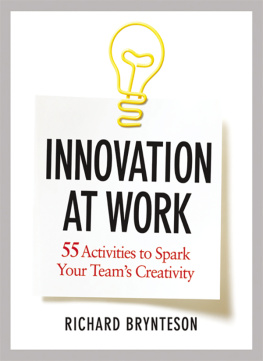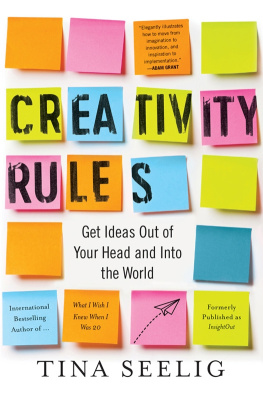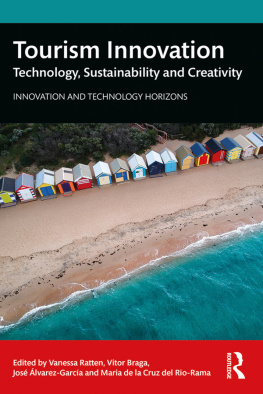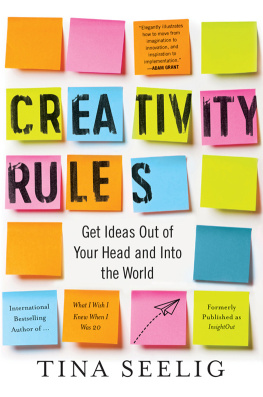
Copyright 2014 by Faisal Hoque. All rights reserved. Except as permitted under the United States Copyright Act of 1976, no part of this publication may be reproduced or distributed in any form or by any means, or stored in a database or retrieval system, without the prior written permission of the publisher.
ISBN: 978-0-07-183136-9
MHID: 0-07-183136-3
The material in this eBook also appears in the print version of this title: ISBN: 978-0-07-183075-1, MHID: 0-07-183075-8.
eBook conversion by codeMantra
Version 1.0
All trademarks are trademarks of their respective owners. Rather than put a trademark symbol after every occurrence of a trademarked name, we use names in an editorial fashion only, and to the benefit of the trademark owner, with no intention of infringement of the trademark. Where such designations appear in this book, they have been printed with initial caps.
McGraw-Hill Education ebooks are available at special quantity discounts to use as premiums and sales promotions or for use in corporate training programs. To contact a representative, please visit the Contact Us page at www.mhprofessional.com.
TERMS OF USE
This is a copyrighted work and McGraw-Hill Education and its licensors reserve all rights in and to the work. Use of this work is subject to these terms. Except as permitted under the Copyright Act of 1976 and the right to store and retrieve one copy of the work, you may not decompile, disassemble, reverse engineer, reproduce, modify, create derivative works based upon, transmit, distribute, disseminate, sell, publish or sublicense the work or any part of it without McGraw-Hill Educations prior consent. You may use the work for your own noncommercial and personal use; any other use of the work is strictly prohibited. Your right to use the work may be terminated if you fail to comply with these terms.
THE WORK IS PROVIDED AS IS. McGRAW-HILL EDUCATION AND ITS LICENSORS MAKE NO GUARANTEES OR WARRANTIES AS TO THE ACCURACY, ADEQUACY OR COMPLETENESS OF OR RESULTS TO BE OBTAINED FROM USING THE WORK, INCLUDING ANY INFORMATION THAT CAN BE ACCESSED THROUGH THE WORK VIA HYPERLINK OR OTHERWISE, AND EXPRESSLY DISCLAIM ANY WARRANTY, EXPRESS OR IMPLIED, INCLUDING BUT NOT LIMITED TO IMPLIED WARRANTIES OF MERCHANTABILITY OR FITNESS FOR A PARTICULAR PURPOSE. McGraw-Hill Education and its licensors do not warrant or guarantee that the functions contained in the work will meet your requirements or that its operation will be uninterrupted or error free. Neither McGraw-Hill Education nor its licensors shall be liable to you or anyone else for any inaccuracy, error or omission, regardless of cause, in the work or for any damages resulting therefrom. McGraw-Hill Education has no responsibility for the content of any information accessed through the work. Under no circumstances shall McGraw-Hill Education and/or its licensors be liable for any indirect, incidental, special, punitive, consequential or similar damages that result from the use of or inability to use the work, even if any of them has been advised of the possibility of such damages. This limitation of liability shall apply to any claim or cause whatsoever whether such claim or cause arises in contract, tort or otherwise.
To our readers, the dreamers of dreams
I have become my own version of an optimist. If I cant make it through one door, Ill go through another dooror Ill make a door. Something terrific will come no matter how dark the present.
Rabindranath Tagore
CONTENTS
PART I
WHEN, WHO, AND HOW ARE YOU?
CHAPTER 1
UNDERSTANDING WHEN, WHAT, AND WHO WE ARE
CHAPTER 2
MINDFUL EXPERIENCE, AUTHENTIC SELF
CHAPTER 3
WHAT WE TALK ABOUT WHEN WE TALK ABOUT WORKING TOGETHER
CHAPTER 4
LONG-TERM PLANS, DYNAMIC PRESENT
PART II
PERSONAL EXPERIENCES, SHARED CULTURES, AND OTHER RHYTHMS
CHAPTER 5
STRUCTURES OF INNOVATION
CHAPTER 6
PERFORMING INNOVATION
CHAPTER 7
LEADING, SUSTAINING, AND OTHER WAYS TO GROW
PART III
FLOWING IDEAS, GROUNDED DECISIONS, AND LONG-BURNING VALUE
CHAPTER 8
CREATING CONSTANT CREATION
CHAPTER 9
BLUEPRINTING DECISIONS
CHAPTER 10
WHEN VALUE BECOMES LONG TERM
FOREWORD
INNOVATION IS A HUMAN ENDEAVOR
By Marshall Goldsmith
As the world has become more globally connected, our personal interconnections have grown exponentially. The speed and pace of our days has greatly increased. In this busier, more connected world, it can be difficult to take the time needed to reflect on our careers and our lives. While our opportunities and challenges seem to be growing, the time available to reflect on these opportunities and challenges seems to be shrinking.
My professional mission is to help successful leaders achieve positive, lasting change in behavior. Over the years I have seen how the leadership behaviors that have led to one level of success might not be the same behaviors needed to achieve a higher level of success. In my coaching, all my clients receive confidential 360-degree feedback. This feedback comes from managers, peers, colleagues, and direct reports. In many cases my clients also receive feedback from family members and friends. This type of comprehensive feedback may enable us to see the blind spots that inhibit our growth. When leaders have a complete perspective, they can move forward with clarity. Buddha noted that right understanding leads to right action. One word for such a comprehensive view of life is holistic.
In problem analysis, the holistic approach takes into account the whole system of causes and effects that have an impact on the problem. If the problem were a knot, the holistic problem solver would review each threads direction and how they all fit togetherhow the many parts created the puzzling whole. After seeing how the tangling happened, it can be easy to untie the knot; the solution practically suggests itself.
Holistic problem solving helps us systematically review the messy knots in our lives and then create clear, ready-to-implement solutions.
This book helps us find holistic solutions to problems in our organizations and in our lives. To do this it combines different disciplines.
While there are many books about understanding business and many books about understanding ourselves, there are few books that address both issues at once. In addressing both of these issues, Faisal Hoque and Drake Baer have drawn upon knowledge from many sources, including organizational theory, neuroscience, and management theory, as well as psychology, spirituality, and self-improvement. Their holistic approach illustrates how these different views of the world can be connected.
The holistic approach described in the book was shaped by the backgrounds of the authors. Faisal, the entrepreneur, innovator, and elder of the duo, was born in Bangladesh (near the birthplace of Buddha) and found himself in the boardrooms of Fortune 100 companies by the time he was 27. Drake, the journalist, traveler, and younger of the two, was born in Illinois and found himself in Himalayan meditation retreats by the time he was 24. Theres something disparate, united, and exciting about that combo, and their creative tension is found throughout the argument and adventure of the text. Together, theyve created a book thats as much about business as it is about life or as much about life as it is about business.


